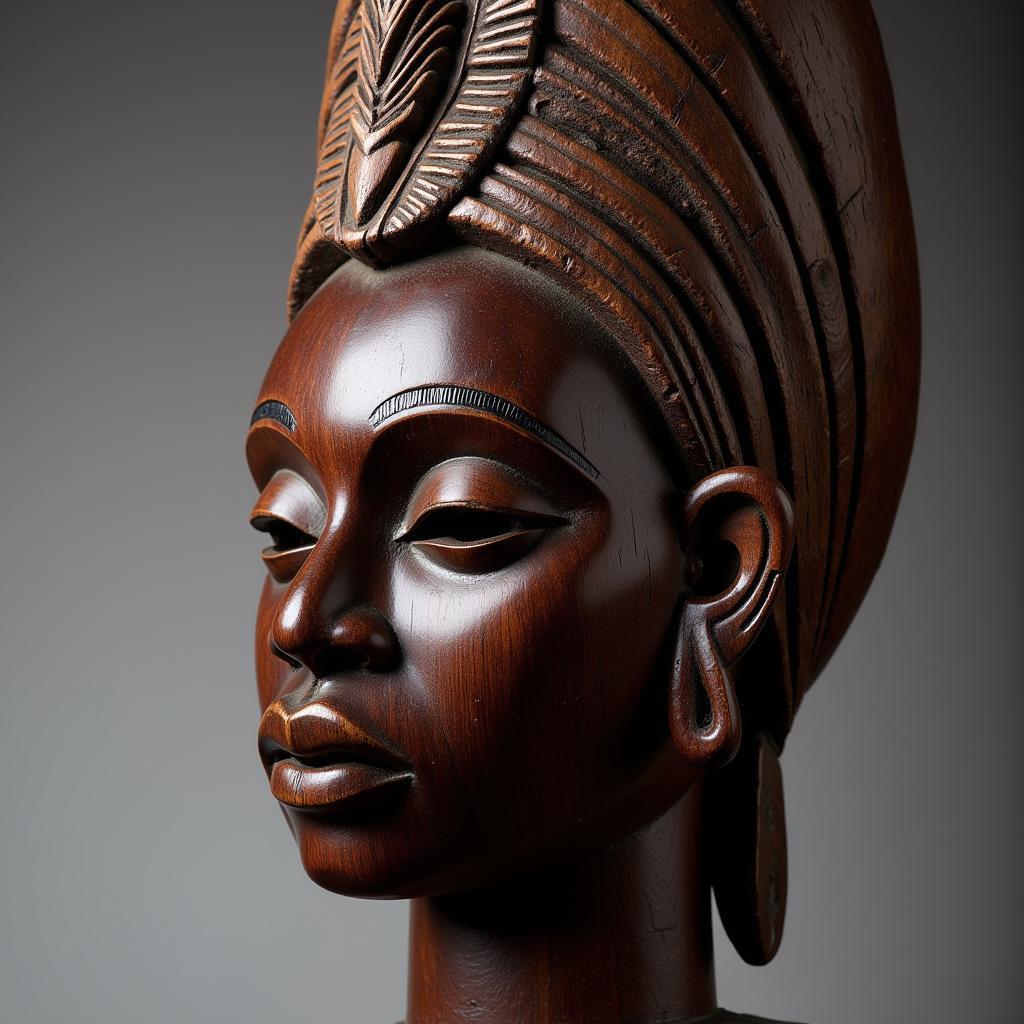African Cichlid Water Parameters: A Comprehensive Guide
African Cichlid Water Parameters are crucial for the health and well-being of these vibrant and fascinating fish. Maintaining the correct water chemistry is essential for their longevity and vibrant coloration, preventing diseases, and encouraging natural behaviors. This guide will delve into the specifics of ideal water conditions for various African cichlid species, offering practical advice and solutions for aquarists of all levels.
Understanding African Cichlid Water Chemistry
African cichlids originate from diverse habitats, primarily the rift lakes of East Africa. These lakes are known for their hard, alkaline water, a characteristic that has shaped the evolutionary path of these fish. Recreating these conditions in the home aquarium is vital for mimicking their natural environment and ensuring their overall health. While different cichlid species may have slightly varying requirements, certain general parameters apply to most.
The key parameters to consider are pH, hardness, temperature, and nitrates. Maintaining the proper balance of these elements ensures a thriving cichlid community. Regular water testing is paramount, enabling you to address any imbalances promptly.
Key Water Parameters for African Cichlids
pH Levels: Maintaining Alkalinity
For most African cichlids, a pH between 7.8 and 8.6 is ideal. This alkaline environment mirrors their natural habitat and helps prevent stress and disease. Regular monitoring and adjustments are necessary, as pH can fluctuate due to factors like biological processes within the tank.
Hardness: GH and KH
General hardness (GH) and carbonate hardness (KH) also play significant roles. GH, a measure of dissolved minerals, should be kept between 10 and 20 dH. KH, which buffers pH fluctuations, should be maintained between 10 and 15 dH. Maintaining a stable KH is particularly important for preventing sudden pH drops, which can be detrimental to cichlids.
Temperature: The Right Degree of Warmth
African cichlids thrive in warmer waters, generally between 76°F and 82°F (24°C and 28°C). Maintaining a consistent temperature within this range is crucial for their metabolism and immune system function.
“A stable temperature is as crucial as clean water for African cichlids,” says Dr. Amina Bakari, a renowned aquatic veterinarian specializing in cichlid health. “Fluctuations can stress the fish and make them susceptible to various illnesses.”
Nitrates: Minimizing Waste Buildup
Nitrates, a byproduct of the nitrogen cycle, should be kept as low as possible, ideally below 20 ppm. High nitrate levels can lead to algae growth and stress the fish. Regular water changes are essential for removing excess nitrates and maintaining a healthy aquatic environment.
african cichlid breeding water parameters
Water Changes and Maintenance
Regular partial water changes are crucial for maintaining optimal african cichlid water parameters. Changing 15-20% of the water weekly helps remove accumulated waste, replenish essential minerals, and maintain stable water chemistry.
“Regular water changes are the cornerstone of maintaining a healthy cichlid aquarium,” adds Dr. Bakari. “It’s a simple yet highly effective way to prevent many common problems.”
[african cichlids eating live fish](https://omenkamag.com/african-cichlids-eating-live fish/)
Choosing the Right Filtration System
A robust filtration system is essential for removing waste, clarifying the water, and maintaining a healthy environment. Choose a filter rated for the size of your tank and consider incorporating biological, mechanical, and chemical filtration methods for optimal results.
Troubleshooting Common Water Parameter Issues
Sudden changes in pH, cloudy water, or excessive algae growth can indicate problems with water parameters. Testing the water regularly and addressing any imbalances promptly can prevent these issues from escalating.
african cichlid breeding behavior
Conclusion
Understanding and maintaining appropriate african cichlid water parameters is fundamental to the success of any cichlid aquarium. By following these guidelines and regularly monitoring your tank’s water chemistry, you can ensure a vibrant, healthy, and thriving environment for your African cichlids.
FAQ
- How often should I test my cichlid tank’s water?
- What are the signs of poor water quality in a cichlid tank?
- How can I raise the pH in my cichlid tank?
- What is the ideal water hardness for African cichlids?
- How often should I perform water changes in my cichlid tank?
- Can I use tap water for my African cichlids?
- What are the best filtration options for African cichlids?
Common Scenarios and Questions
- Scenario: Cloudy water after a water change. Possible Cause: Incorrect water conditioner dosage, disturbed substrate releasing debris.
- Question: My cichlids are lethargic. Could it be a water parameter issue? Answer: Yes, lethargy can be a sign of ammonia or nitrite spikes.
Further Exploration
Consider reading articles on specific African cichlid species and their individual water parameter requirements.
Need assistance with your African cichlids? Contact us! Phone: +255768904061, Email: [email protected], or visit us at Mbarali DC Mawindi, Kangaga, Tanzania. Our customer service team is available 24/7.


